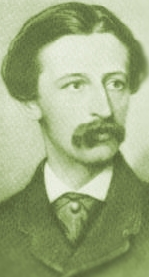A Quote by Augustus Hare
Since the generality of persons act from impulse, much more than from principle, men are neither so good nor so bad as we are apt to think them.
Related Quotes
The most noble and profitable invention of all other, was that of SPEECH, consisting of Names or Appellations, and their Connexion; whereby men register their Thoughts; recall them when they are past; and also declare them one to another for mutuall utility and conversation; without which, there had been amongst men, neither Commonwealth, nor Society, nor Contract, nor Peace, no more than amongst Lyons, Bears, and Wolves.
The adult May fly lives only a few hours, just long enough to mate. He has neither mouth nor stomach, but needs neither since he does not live long enough to need to eat. The eggs the May fly leaves hatch after the parent has died. What is it all about. What's the point? There is no point. That's just the way it is. It is neither good nor bad. Life is mainly simply inevitable. (41)
When it comes to partisan politics, everyone is a hypocrite. And all they care about is whether it hurts or helps them ... Is it good or bad for the Democrats? Is it good or bad for the Republicans? Is it good or bad for Jews, or good or bad for blacks, or is it good or bad for women? Is it good or bad for men? Is it good or bad for gays? That's the way people think about issues today. There is very little discussion of enduring principles.
Now since man is naturally inclined to avoid pain - and since labor is pain in itself - it follows that men will resort to plunder whenever plunder is easier than work. History shows this quite clearly. And under these conditions, neither religion nor morality can stop it. When, then, does plunder stop? It stops when it becomes more painful and more dangerous than labor.
He has great tranquillity of heart who cares neither for the praises nor the fault-finding of men. He will easily be content and pacified, whose conscience is pure. You are not holier if you are praised, nor the more worthless if you are found fault with. What you are, that you are; neither by word can you be made greater than what you are in the sight of God.




































